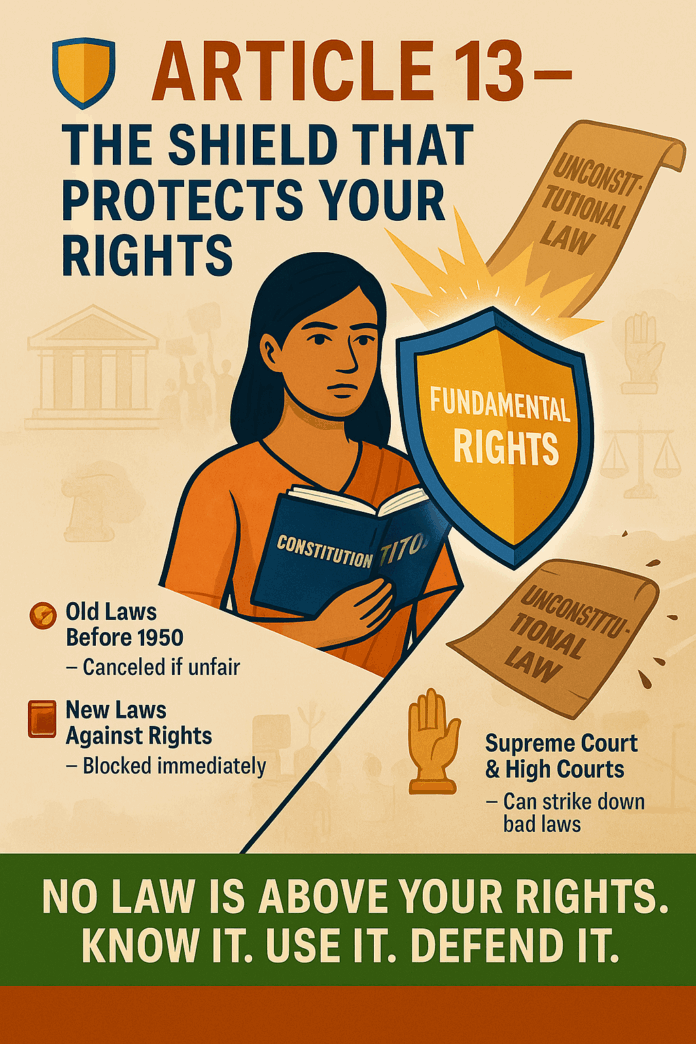What is Article 13?
Article 13 is like a guardian of your Fundamental Rights. It says that no law—past, present, or future—can violate the rights given to you by the Constitution.
✅ In Simple Words:
If any law goes against your Fundamental Rights, that law becomes invalid.
🔍 What Article 13 Does:
Kills old laws that hurt your rights
➤ Any law made before 1950 (before the Constitution came into force) that violates your fundamental rights is automatically void.
Blocks new harmful laws
➤ If the Parliament or State Legislature tries to make a new law that takes away your fundamental rights—that law will not stand.
Gives power to courts
➤ High Courts and the Supreme Court can strike down any law that violates your fundamental rights.
⚖️ Why It’s So Important:
It makes Fundamental Rights powerful.
It limits the power of government.
It ensures no law is above the Constitution.
Real-Life Example:
Let’s say a state makes a law that says:
“Only men can apply for a government scholarship.”
⚠️ That goes against your Right to Equality (Article 14).
➡️ Because of Article 13, that law can be challenged and removed by the court.
💡 So, What Can You Do?
If you feel a law or policy violates your rights, you can go to court.
Use Article 32 (Right to Constitutional Remedies) to file a petition in the Supreme Court.
Learn your rights — because you have the power to question and stop unfair laws.
Article 13 is your Constitutional Alarm System.
It alerts the courts if a law attacks your rights — and throws that law out. – can you create a image prompt for above










